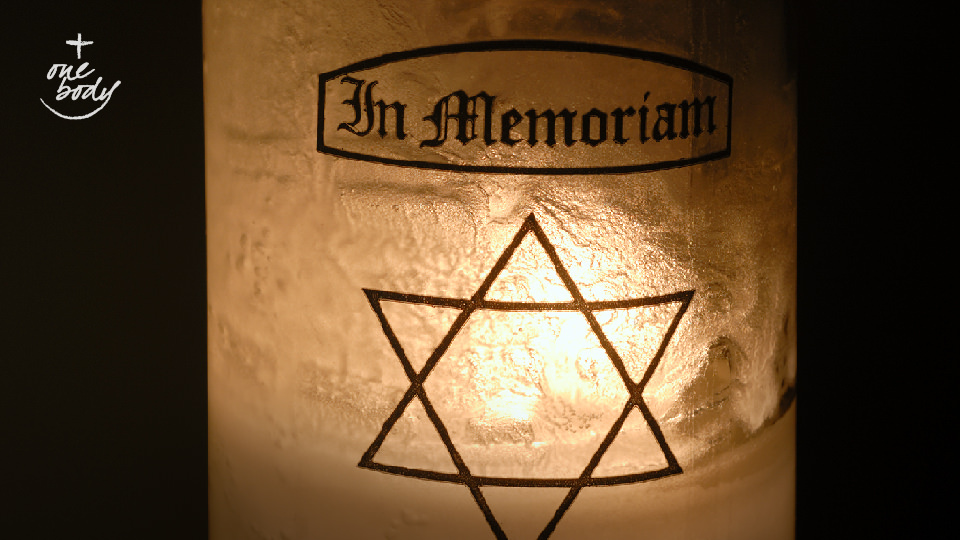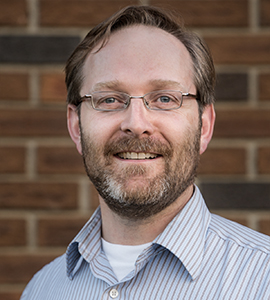

Remembering We Remember | One Body
Julien Hammond
Tuesday, February 28, 2023

Jewish Yahrzeit Candle to Remember the Dead. iStock Photo

Remembering We Remember
by Julien Hammond
This year marks the 25th anniversary of We Remember: A Reflection on the Shoah, issued on 16 March 1998 by the Holy See’s Commission for Religious Relations with the Jews. I remember this date quite well, as I was a graduate student of Jewish Studies at that time. I attended an official document release event at Yad Vashem, the great World Holocaust Remembrance Centre in Jerusalem. The event was held in a large hall filled with first and second-generation Holocaust survivors, numerous scholars of the Shoah, and a few Vatican officials. It marked my Christian conscience forever, and helped to set the course for my life in interreligious relations. For anyone unfamiliar with the text of We Remember, the document was an effort by our Catholic Church:- to come to terms with the Shoah (a Hebrew word meaning “catastrophe”; the term Holocaust is also commonly used)
- to reckon with the fact that the Shoah took place largely in the “Christian countries” of Europe
- to call Catholics and other Christians to “deep sorrow” and “repentance (teshuva)” for “the errors and failures of those sons and daughters of the Church”, who by sins of omission or commission participated in and/or set conditions for the horrifying events of the Shoah
- to invite Catholics and other Christians to “join us in meditating on the catastrophe which befell the Jewish people, and on the moral imperative to ensure that never again will selfishness and hatred grow to the point of sowing such suffering and death.”
“No one can remain indifferent [in the face of the Shoah], least of all the Church, by reason of her very close bonds of spiritual kinship with the Jewish people and her remembrance of the injustices of the past.”
The Christian duty to remember the Shoah is more than simply to recall a terrible past event. It is also to reckon with our collective church history, especially "all those times in history when [Christians] departed from the spirit of Christ and his Gospel and, instead of offering to the world the witness of a life inspired by the values of faith, indulged in ways of thinking and acting which were truly forms of counter-witness and scandal." Remembering, in this sense, is really about making the past present in order “to purify…hearts, through repentance of past errors and infidelities.” It is part of the perennial task of renewing and conforming our Christian lives to the Gospel and the true way of Christ. My colleagues and I have written on this theme many times in earlier One Body posts. At the same time, We Remember revisits the profound teaching of Vatican II found in Nostra Aetate #4, that spells out the full extent of “the bond that spiritually ties the people of the New Covenant to Abraham’s stock.” It also presents the lesser known, but no less powerful, assertion of Pope Pius XI in 1938 that “Anti-Semitism is unacceptable. Spiritually, we are all Semites.” These remain challenging propositions from several Jewish perspectives, but Catholics today, as in the past, do well to contemplate the full extent of what such teachings signify, both within their own identity and in the relationship between Christians and Jews.“The inhumanity with which the Jews were persecuted and massacred during this century is beyond the capacity of words to convey. All this was done to them for the sole reason that they were Jews.”
We Remember presents a too brief and woefully incomplete sketch of Jewish-Christian relations throughout history. It simply concludes that “The history of relations between Jews and Christians is a tormented one.…In effect, the balance of these relations over two thousand years has been quite negative.” It is obviously insufficient to hold We Remember as the only source for understanding or interpreting this “tormented” history: entire libraries are dedicated to this subject. The point, however, is for Christians and particularly Catholics to engage that history fully, not by “the ordinary criteria of historical research alone” but via “a ‘moral and religious memory’ and, particularly among Christians, a very serious reflection on what gave rise to it.” “Catholic Teaching on the Shoah: Implementing the Holy See’s We Remember,” from the US Conference of Catholic Bishops, is an excellent primer on these subjects.Considering the question, “Did Christians give every possible assistance to those being persecuted and in particular to the persecuted Jews?” the document answers, “Many did, but others did not.”
Yad Vashem is the foremost resource honouring the lives of heroic persons who helped Jews during the Shoah, the so-called “Righteous Among the Nations.” Included in their database are the names and stories of thousands of Christians who sacrificed their safety, and often their lives, in order to help persecuted Jews during the time of the Shoah. The Catholic Church rightly honours many such “Righteous” with the crowns of sainthood and/or martyrdom. It can sometimes be tempting to romanticize these exemplars as typifying the Christian response during the Shoah. We Remember points out that while it is clear that a non-Christian, neo-pagan ideology and regime were materially to blame for the Shoah, the sheer magnitude of the event, and the fact that it took place within primarily “Christian countries” in Europe, raises many questions. We Remember solicits a kind of mild examination of conscience in this respect: “Did anti-Jewish sentiment among Christians make them less sensitive, or even indifferent, to the persecution launched against the Jews by National Socialism when it reached power?” The answer: “…alongside such courageous men and women, the spiritual resistance and concrete action of other Christians was not that which might have been expected from Christ's followers.…For Christians, this heavy burden of conscience of their brothers and sisters during the Second World War must be a call to penitence.”“We appeal to our Catholic brothers and sisters to renew the awareness of the Hebrew roots of their faith.”
Much of the post-Vatican II theology of Jewish-Catholic relations is dedicated to this theme. It is essential for contemporary Catholics to familiarize themselves with the corpus of texts (including We Remember) produced by the Holy See’s Commission for Religious Relations with the Jews. These include:- Vatican II’s Declaration on the Relation of the Church to Non-Christian Religious (Nostra Aetate), especially section no. 4. (1965)
- Guidelines and Suggestions for Implementing the Conciliar Declaration Nostra Aetate (n.4). (1974)
- Notes on the Correct Way to Present Jews and Judaism in Preaching and Catechesis in the Roman Catholic Church. (1985)
- “The Gifts and Calling of God are Irrevocable” (Rom. 11.29) – A Reflection on Theological Questions pertaining to Catholic-Jewish Relations on the Occasion of the 50th Anniversary of Nostra Aetate (n.4). (2015)
“We pray that our sorrow for the tragedy which the Jewish people has suffered in our century will lead to a new relationship with the Jewish people.”
The Church implores us “to build a new future in which there will be no more anti-Judaism among Christians or anti-Christian sentiment among Jews, but rather a shared mutual respect, as befits those who adore the one Creator and Lord and have a common father in faith, Abraham.” Here in Canada, the Canadian Conference of Catholic Bishops has maintained a continuous relationship with national Jewish organizations since 1977. At times, this engagement has happened ecumenically, in concert with the Canadian Council of Churches. Today it takes place bilaterally as a meeting between representatives of the CCCB and the Canadian Rabbinic Caucus. In the year 2000, the CCCB’s Commission for Ecumenism released Jubilee: Renewing Our Common Bonds with the Jewish Community: An Invitation to the Members of the Catholic Church. This document, which received much national and international acclaim at the time of its publication, encouraged Canadian Catholics and Jews to get to know one another better through study, dialogue and exchange visits. It encouraged collaboration on projects together, especially in the service of justice and peace. Canadian Catholics were called upon “to commemorate the Holocaust (Shoah),” and to combat “all forms of anti-semitism and discrimination.” The Commission has since issued a whole series of joint statements and other texts promoting and celebrating positive Jewish-Catholic initiatives in Canada. Alas, space does not permit a listing of all the exceptional Jewish-Catholic dialogue work that is happening in centres such as Montreal, Toronto, Winnipeg/St. Boniface, Calgary, and in cities and towns all across Canada. We Remember concludes with a haunting image and a challenge to continue this dialogue work, a challenge that remains as pressing and relevant for us today as it was 25 years ago:The victims from their graves, and the survivors through the vivid testimony of what they have suffered, have become a loud voice calling the attention of all of humanity. To remember this terrible experience is to become fully conscious of the salutary warning it entails: the spoiled seeds of anti-Judaism and anti-Semitism must never again be allowed to take root in any human heart.
 Julien Hammond has been the ecumenical officer for the Catholic Archdiocese of Edmonton for over twenty years. He has served as a member of the Roman Catholic-United Church of Canada Dialogue, the Anglican-Roman Catholic Dialogue in Canada, and the Christian Church (Disciples of Christ)-Roman Catholic International Consultation. He is currently a member of the Jewish-Catholic national dialogue, co-sponsored by the Canadian Rabbinic Caucus and the Canadian Conference of Catholic Bishops.
Julien Hammond has been the ecumenical officer for the Catholic Archdiocese of Edmonton for over twenty years. He has served as a member of the Roman Catholic-United Church of Canada Dialogue, the Anglican-Roman Catholic Dialogue in Canada, and the Christian Church (Disciples of Christ)-Roman Catholic International Consultation. He is currently a member of the Jewish-Catholic national dialogue, co-sponsored by the Canadian Rabbinic Caucus and the Canadian Conference of Catholic Bishops.Related Articles:
<<













